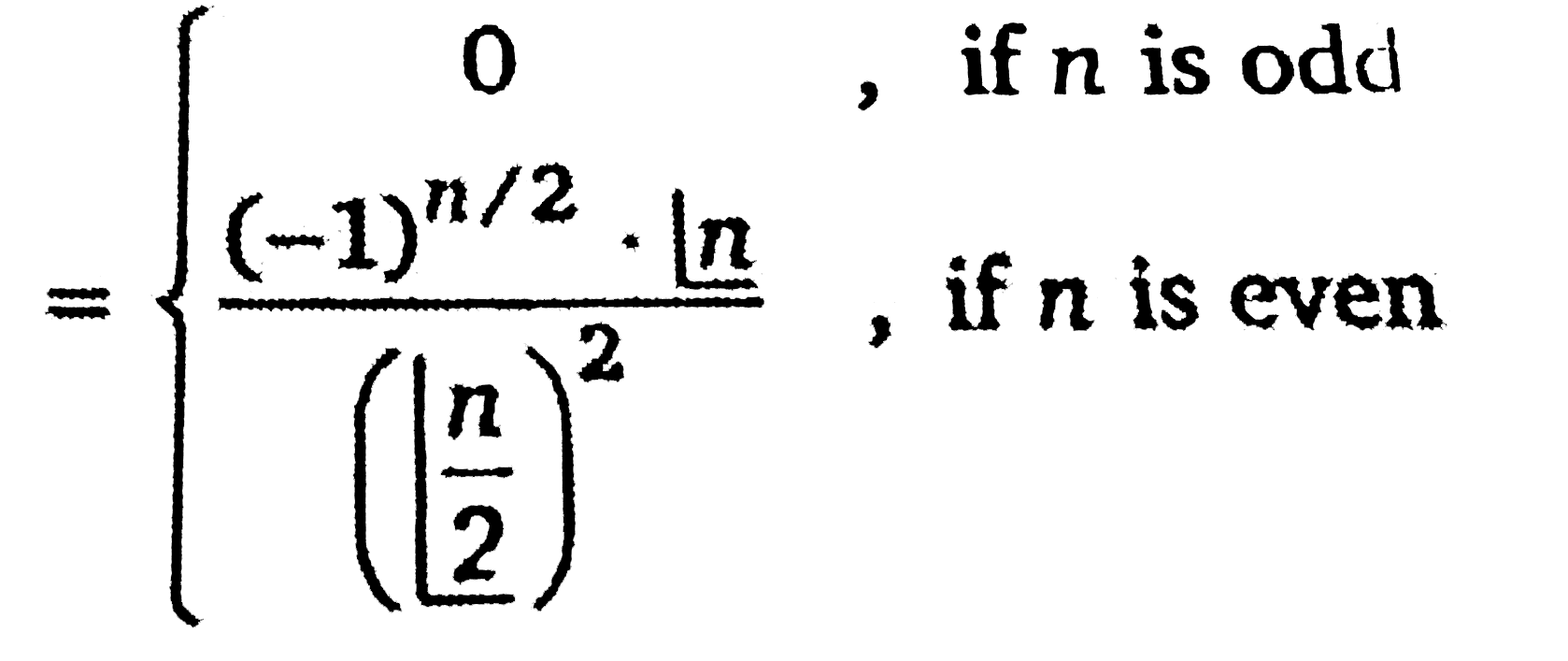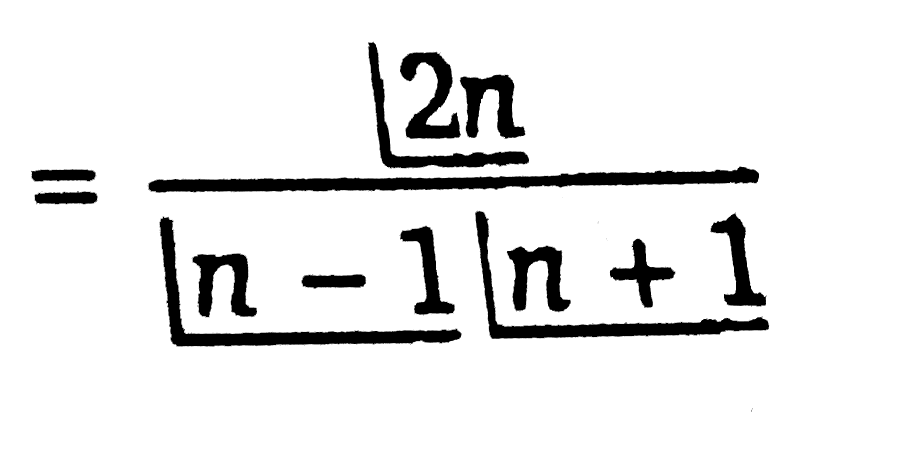If C0,C1,C2………Cn are the binomial coefficient in the expansion of (1+x)n then prove that:
C20+C21+C22+……..+C2n=∣2–n|n––|n––
The correct Answer is:N/a
(1+x)n=C0+C1.x+C2.x2+......+Cn.xn and (x+1)n=C0.xn+C1.xn−1+C2.xn−2+......+Cn
Multiple both eqs. We get .
(1+x)2n=(C0+C1.x+C2.x2+....+Cn.xn)
(C0.xn+C1.xn−1+C2.xn−2+....+Cn)
Now
C20+C21+C22+....+C2n= Coefficient of xn in the expansion of (1+x)2n
Tr+1=2nCr.(1)2n−r.xr=2nCr.xr
∴ Coefficient of xn=2nCn=∣2–n|n––|n––
Therefore
C20+C21+C22+.....+C2n=∣2–n|n––|n–– Hence Proved.
Topper's Solved these Questions
Similar Questions
ifC0C1C2,……Cn are the binomial coefficients in the expansion of (1+x)n then prove that:
C0C2+C1C3+C2C4+……+Cn−2Cn=∣2–n|n––−2|n––+2
View SolutionIn C0,C1C2….Cn are the binomial coefficients in the expansion of (1+x)n then prove that :
(i)C20−C21+C22−C23+…..+(−1)n.C2n

(ii)C0C1+C1C2+C2C3+....+Cn−1Cn

View Solution
Knowledge Check
If C0,C1,C2,…,Cn denote the binomial coefficients
in the expansion of (1+x)n, then
C02+2C12+3C22+...+(n+1)Cn2=A(2n+1)2nCnB(2n−1)2nCnC(n2+1)2nCnD(n2+1)2n−1CnIf C0,C1,C2,…,Cn denote the binomial coefficients
in the expansion of (1+x)n, then
C02+2C12+3C22+...+(n+1)Cn2=A(2n+1)2nCnB(2n−1)2nCnC(n2+1)2nCnD(n2+1)2n−1CnIf C0,C1,C2,…,Cn denote the binomial
coefficients in the expansion of (1+x)n, then n∑r=0n∑s=0(Cr+Cs)A(n+1)2B(n+1)2n+1Cn2nDn2n+1
If C0,C1,C2,...Cn are the binomial coefficients in the expansion of (1+x)n then prove that: C0+C12+C23+……+Cnn+1=2n+1−1n+1
View SolutionIn C0,C1C2….Cn are the binomial coefficients in the expansion of (1+x)n then prove that :
(i)C20−C21+C22−C23+…..+(−1)n.C2n

(ii)C0C1+C1C2+C2C3+....+Cn−1Cn

View SolutionIf CoC1,C2,.......,Cn denote the binomial coefficients in the expansion of (1+x)n, then the value of n∑r=0(r+1)Cr is
View SolutionIf C0,C1,C2,.......,Cn denote the binomial coefficients in the expansion of (1+1)n, then ∑0≤r∑<s≤n(Cr+Cs)
View SolutionIf C0,C1,C2,…,Cn denote the binomial
coefficients in the expansion of (1+x)n , then n∑r=0n∑s=0CrCs=
View Solution
